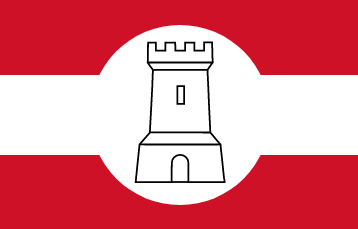«123456. . .213214»
Let's not cause problems in our new region, we are all civilised here, let's talk this over and have no hard feelings. We're all part of this region.
Kawzàmox probleme novu rejionìmo, civilizùmo, parlàmo dwara u nitsenti'àmox. Kulrejionwùmo
Kowani, Switzerland-but nationalist, and Upper alterac
Jaz nie tu, by zedati problemy. Kwto jest’, niek nie bõdiet’ tu.
I am not here to cause problems. Whoever is, let him not be here.
Post self-deleted by Viriam.
Updatim mi informitar-linga!
Updated my language Factbook!
Braussland, Kowani, Switzerland-but nationalist, and Upper alterac
Mitbonù! Contentùe inspirartid lingwìsf! Qifattàs l-imperatifo Virianof? Braussianof uzàm l-enu persona:
"Parlà!" "Parlàn"
U nosk uzàm l-onu persona esclusivo (nos minas)
"Parlàm"
It's very good! I'm have to have inspired your language! How do you do the imperative in Viriamian? In Braussian we use the third person:
Speak! (to one person) "parlà"
Speak! (To multiple people) "parlàn"
And for "we" we use the exclusive first person plural (we without you)
"Parlàm"
A, krao-od... sal jod foš p̌amp̌am-eu, aš-od eŋin adtjka-eu-šo
Ah, y'know... if you don't like me then you can just tell me 😅
F'pazzùm amiciè! Disputàmx!
Let's be in peace my friends! Let's not fight!
Kowani, Switzerland-but nationalist, and Upper alterac
'I' is plural
'Im' is we without you..
Speak (one person): Línga
Speak (two or more people): Língai
Speak (We without you): Lingim
Also, Viriamian can be used but the language is officially named Viri
Post self-deleted by Viriam.
Ai, nilé á. Doman updatum emin librinfim tardom.
Yes, we do. I will update it on my factbook later.
Ánesemplam;/For example;
We run (inclusive) (us and you): Sprilo
We run (exclusive) (us but not you): Sprilé
Mercúl!
Thank you!
Il-Franciano, l-Angliano, l-Ispaniano, il-Braussiano u titMalti
French, English, Spanish, Braussian and a bit of Maltese
English, Polish, and some Russian
Kowani and Viriam
Língi Angli aúl primim e Latini modernam esa bim.
I speak English as a native and Modern day Latin as a second.
A linga insipri ovaú Latini Moderni pe grandim-sotad, simplam e conjugatim.
This language is based off of Modern Latin but more sleek, simplistic and conjugative.
Since we're doing this, here's a random fact of my language:
Unlike most other Slavic languages (but like Bulgarian and Macedonian), we still use the aorist for a simple past tense.
As an example, the verb dielati (to do):
1st singular (I did): jaz dielah
2nd singular (you did): ty diela
3rd singular (he/she/it did): on/ona/ono diela
1st dual (we two did): vie dielahovie
2nd dual (you two did): va dielasta
3rd dual (they two did): ona/onie/onie dielastie
1st plural (we did): my dielahom
2nd plural (you did): vy dielastie
3rd plural (they did): oni/ony/ona dielašã
This is not to be confused with the imperfect tense (I was doing), that would be dielaah, dielaaše, dielaaše, dielaahovie, dielaašeta, dielaašetie, dielaahom, dielaašetie, dielaahõ.
This contrasts with the past participle (I have done), this conjugates like an adjective (same across persons within the same number, and conjugates according to gender of the subject):
Singular: dielav (m), dielavo (n), dielava (f)
Dual: dielava (m), dielavie (n), dielavie (f)
Plural: dielavi (m), dielava (n), dielavy (f)
«123456. . .213214»
Advertisement












